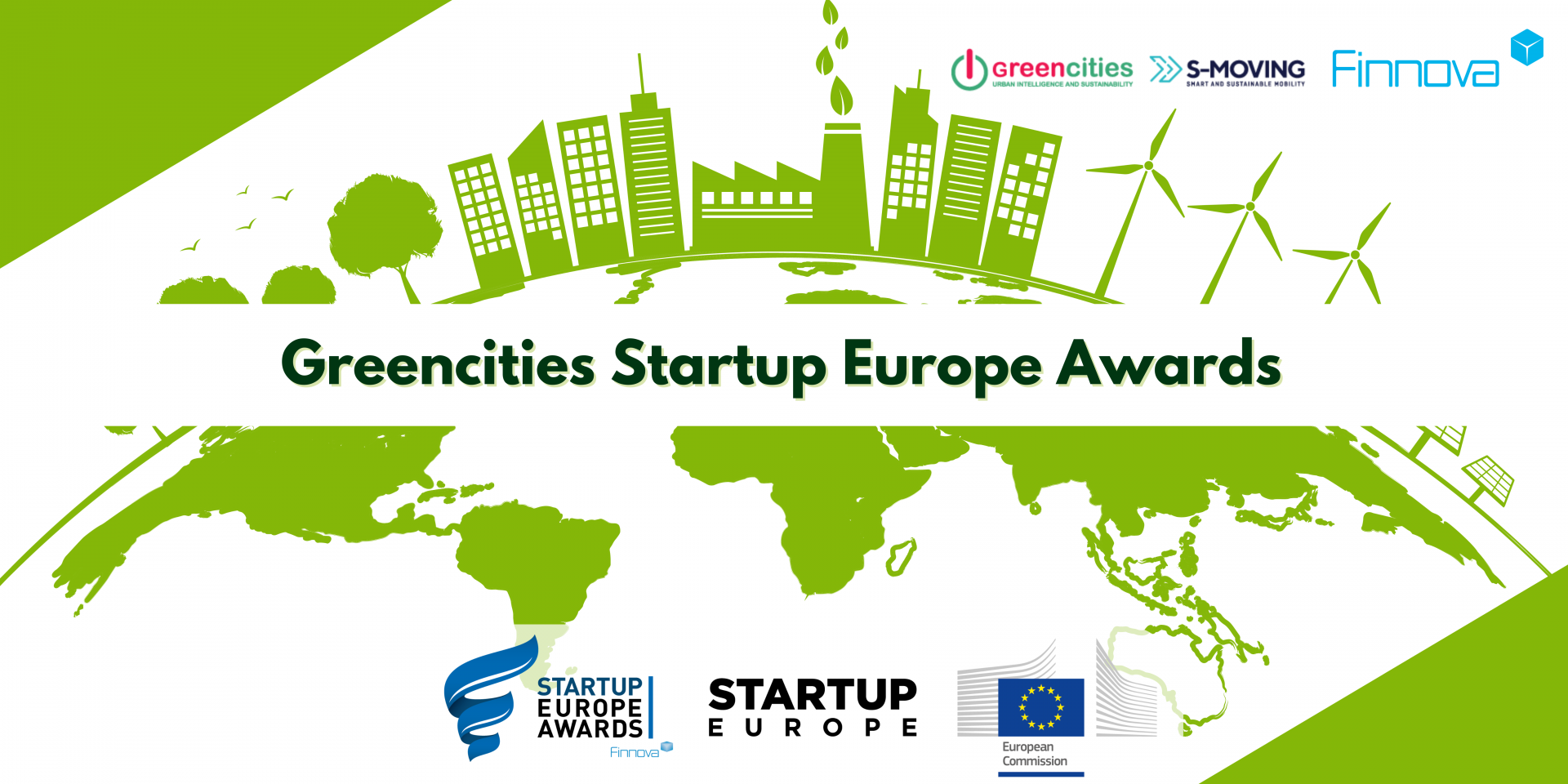- During the Transfiere forum on 17 February, Finnova launched a new edition of the Startup Europe Awards at the seminar Synergies towards Technology Transfer
- In this edition of the awards, three challenges were presented: “Valorisation of textile waste generated by the HORECA sector and its circular implementation”, “Valorisation of organic waste generated by the HORECA sector and its circular implementation” and “Promotion of energy efficiency in cities through the use of renewable energies in order to mitigate climate change”
During Transfiere, the largest European forum for science, technology and innovation, held at the Palacio de Ferias y Congresos de Málaga (FYCMA) from 15 to 17 February, Finnova launched a new call for the GREENCITIES Startup Europe Awards with three challenges: “Valorisation of textile waste generated by the HORECA sector and its circular implementation“, “Valorisation of organic waste generated by the HORECA sector and its circular implementation” and “Promotion of energy efficiency in cities through the use of renewable energies in order to mitigate climate change“.
The first challenge is looking for the best startup with an initiative for efficiency in the treatment, reduction and recycling of the HORECA sector for self-sufficiency in their own establishments. The innovative technology and methodology must be able to propose a waste treatment system based on a circular system of waste reuse and recovery.
The second challenge corresponds to a technological proposal capable of proposing a waste treatment system for its transformation into renewable energy sources (e.g. biogas) and generating a “pro-consumer” system (produce and consume). In this way, a circular system for the reuse and exploitation of waste would be established.
The third challenge of Greencities is a project to promote the self-sufficiency of buildings and facilities in cities through the use of renewable energies, reducing the pollution generated by buildings in cities, as they are responsible for 30% of global energy consumption and 28% of CO2 emissions. This challenge contributes to achieving the environmental objectives of the 2030 Agenda.
This last one is similar to the objectives of Finnova’s RES4CITY project, which promotes the development of sustainable energy and fuel technologies in cities through various innovative educational programmes.
This call was presented at the LIFE EDODIGESTION 2.0 – Synergies towards Technology Transfer seminar on 17 February at Transfiere. As for the awards, they are an open innovation tool to identify disruptive startups that promote public-private collaboration and raise awareness of the importance of self-entrepreneurship as a driver of employment.
The final of this edition will be held on Wednesday, 20 and Thursday, 21 September in the framework of Greencities and S-Moving at the Palacio de Ferias y Congresos de Málaga (FYCMA). The challenges posed are committed to innovative entrepreneurship in the field of circular economy, energy efficiency and the fight against climate change. It is also worth mentioning that the innovative startups that present themselves will be able to promote European demonstration projects in programmes such as LIFE and Horizon Europe with grants of between 500,000 and 15 million euros.
Register here to participate and know more about the challenges.
About Startup Europe Awards
The Startup Europe Awards (SEUA) is an initiative driven by the European Commission, implemented by the Finnova Foundation in collaboration with StartUp Europe. It is an open innovation tool that allows companies to identify talented startups capable of solving today’s challenges in multiple areas. Its mission is to help Startups and Scaleups become more efficient, smarter and more successful. These awards are a useful tool to promote knowledge sharing, add value to the entrepreneurial ecosystem and help startups to grow and position themselves in the market.
About LIFE ECODIGESTION 2.0
It is a demonstration pilot project, funded by the LIFE programme and with a budget of more than 970,000 euros, which generates biogas in water treatment plant digesters by mixing putrescible organic waste (slurry, poultry, organic fractions, MSW, horeca, etc.), thus transforming wastewater treatment plant sludge into green energy through technology. The initiative led by Global Omnium, (Spain), in collaboration with the Finnova Foundation (Belgium) and Águas do Centro Litoral (Portugal) aims to become the most versatile digestion control tool on the market by achieving environmental and economic benefits through the production of biogas through optimal waste exploitation. Thanks to this technology, it favours the reduction of greenhouse gas emissions and the exploitation of sewage sludge generated in wastewater treatment processes, thus achieving a positive impact on the environment. This programme is easily scalable with other funds such as ERDF, NextGenerationEU or Repower EU.
About RES4CITY
RES4CITY is a new innovative educational project, in which the Finnova Foundation is a partner. The project has a budget of €2.5 million, fully funded by the European Commission through the Horizon Europe Programme. Juan Viesca, Director of European Funds at Finnova, explained at the launch meeting that this initiative “aims to address the skills shortage in the EU in the renewable energy sector” through a set of educational programmes and tools that enable students to develop skills in renewable energy systems, fuel technologies and sustainability.
About Finnova Foundation
Finnova is the Spanish-Belgian non-profit foundation based in Brussels and Spain, working for the promotion and development of innovation and entrepreneurship in the EU. Finnova’s experience in leading communication and dissemination activities of European projects is combined with a solid proven track record in business creation and entrepreneurial support programmes, such as accelerators, incubators and events, as well as its commitment to training and employability of young people.

